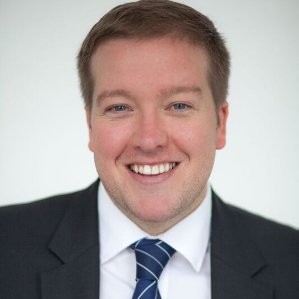18 St John Street Costs Law Specialist James Miller analyses a novel Fixed Costs argument concerning recoverable disbursements.
Recoverable Disbursements in Fixed Costs Cases
I recently acted for several Defendants in fixed costs cases where the fees of orthopaedic spinal and shoulder surgeons were reduced significantly to £420 pursuant to CPR 45.29I (2A)(b)(i).
Although the consultants had expertise in spinal/shoulder injuries, each Judge determined that there is no sub-category of expert nor entitlement to extra costs where an “orthopaedic surgeon” is involved in a fixed costs case. It did not matter that the original instructed orthopaedic experts were unable to comment and referrals were made to alternative consultants.
The Judges applied the Duck Test and accepted the Defendant’s comparison with A & E experts and physiotherapists, whose fees are also limited under the rules notwithstanding any specialism in relation to a specific part of the body. In one case, where the expert’s fees were reduced from £1658.40 to £420, the Judge stated:
“It is not an argument I have heard before and I have heard many arguments in these cases, so it is somewhat novel but…I think in the absence of any definitive evidence that this is an absolutely separate category of expertise, I agree with the defendant…
Any medical expert that describes themselves slightly differently, it could be argued they fall outwith the fixed costs regime and I do not think that that is the intention of the rule and I think that would lead to disproportionate, unnecessary litigation.”
The same approach was adopted in a subsequent case, where an experienced Regional Costs Judge also reduced the spinal expert’s fee from £1425 to £420. The Judge concluded as follows:
“A spinal surgeon is still an orthopaedic surgeon. He does not say, for example, in his CV that he was a consultant orthopaedic surgeon and is now a consultant spinal surgeon, he is still…a consultant orthopaedic and spinal surgeon. The one is a subset of the other…
The rules are intended to be prescriptive, they are inevitably going to have occasional cases that feel like rough justice, but the Court of Appeal has been clear, in particular in Sharp v Leeds City Council[1], that practitioners have to take the rough with the smooth, and I am afraid…that is what applies here and the fixed costs of £420 will be recoverable.”
One of the purposes of the 2013 Jackson Reforms was to create certainty in fixed costs cases however we have had a decade of disputes, many of which have reached the Court of Appeal.
As well as demonstrating the “swings and roundabouts” nature of the regime, these matters show that arguments over disbursements in fixed costs cases will inevitably remain, even after the implementation of the further reforms in October 2023.
[1] [2017] EWCA Civ 33

For further information on James Miller and the Personal Injury, Clinical Negligence & Costs Department please contact Chambers Director James Parks or Practice Manager Ryan Pugh.
